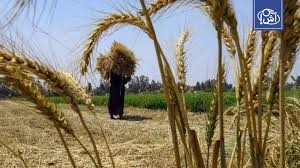Egypt's Minister of Supply and Internal Trade, Ali Al-Moselhi, announced that the Egyptian government plans to cut wheat imports in 2024 by 17% to 5 million tons, compared to the previous forecast of 6 million tons. This decision is due to the revision of the target volume of domestic grain purchases in Egypt for the current season from 3.5 million to 3.7 million tons. The government has already purchased 3.4 million tons and continues to buy grain from local producers until August 15.
Egypt hopes to increase wheat sowing areas to 1.47 million hectares by the 2024/2025 season, which is 126,000 hectares more than sown in the previous season. This step aims to reduce purchases on the international market. The Minister of Planning and Economic Development, Hala El-Said, notes that achieving this goal will increase wheat stocks in the country to 5.2 million tons compared to about 4 million tons in 2023/2024.
On June 1, the Egyptian government raised prices for subsidized bread for the first time in the last 10 years, reports World Grain. Given the depreciation of the local currency and the rise in import prices for wheat, officials decided to increase the price of bread from 4 piastres to 20 piastres.
According to Egypt's Ministry of Supply, there have been no complaints from the public regarding the price increase, which still represents only 16% of the production cost of bread.
It is worth noting that in the early 2010s, protests known as the "Arab Spring" took place in Egypt and other Middle Eastern countries, driven by a sharp rise in prices for unsubsidized bread by 37% and increasing unemployment.



